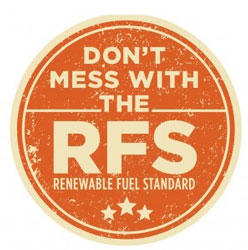A coalition has sued the Environmental Protection Agency (EPA), over the final rules of the Renewable Fuel Standard for 2014, 2015 and 2016 that were finalized near the end of last year. The current levels for fuels do not meet legislative mandates for those years regardless of the fact that the biofuels industry has shown they can meet fuel volumes.
 A group that consists of seven industry associations including BIO, Americans for Clean Energy, American Coalition for Ethanol (ACE), Renewable Fuels Association (RFA), Growth Energy, National Corn Growers Association, the National Sorghum Producers, filed the suit on Friday, January 8, 2016 in the U.S. Court of Appeals for the District of Columbia Circuit (Case 16-1005).
A group that consists of seven industry associations including BIO, Americans for Clean Energy, American Coalition for Ethanol (ACE), Renewable Fuels Association (RFA), Growth Energy, National Corn Growers Association, the National Sorghum Producers, filed the suit on Friday, January 8, 2016 in the U.S. Court of Appeals for the District of Columbia Circuit (Case 16-1005).
According to a group statement, among other things, the petitioners intend to demonstrate that EPA’s interpretation of its general waiver authority is contrary to the statute. By focusing on fuel distribution capacity and demand rather than supply, and by failing to consider surplus RINs from prior years, the Agency erroneously concluded that there was an inadequate supply of renewable fuel to justify a waiver of the levels established by Congress. The petitioners also plan to point out other fundamental flaws and inconsistencies in the government’s rule.
A preliminary, non-binding listing of issues to be raised in the court of appeals will be filed by February 11. The statement concluded, “The petitioners look forward to presenting their arguments to the court of appeals to provide clarity and certainty to market participants concerning the requirements of the statute.”



 The lessons Iowa has learned in making ethanol and biodiesel could serve the state well in an effort to make bio-based chemicals.
The lessons Iowa has learned in making ethanol and biodiesel could serve the state well in an effort to make bio-based chemicals. 



